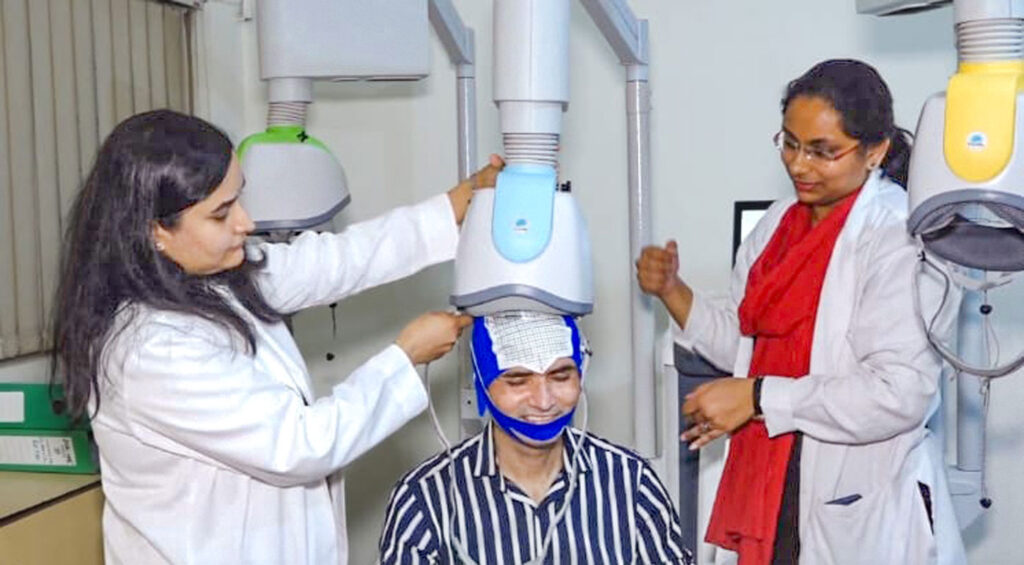
Rotary Club of Delhi North, RID 3012, has installed a deep transcranial magnetic stimulator, a sophisticated equipment imported from the US to treat mental illness, at the Cosmos Institute of Mental and Behavioural Sciences (CIMBS), New Delhi. “We are heeding RI President Gordon McInally’s call to Rotarians to listen to the anguish of people with mental health issues and zeroed in on this project last year,” says club president Raj Gopal Rangwala.
At present, 14 people are undergoing treatment at CIMBS with the help of this machine, and have shown remarkable response.
— Raj Gopal Rangwala, president, RC Delhi North
The non-invasive machine is effective in treating people suffering from extreme depression, bipolar and obsessive compulsive disorders, schizophrenia, substance addiction and neurological conditions such as multiple sclerosis and stroke, conditions that cannot be treated through medicines or counselling support.
The equipment, worth ₹1.5 crore and procured with global grant support from RC Birtamode Midtown, RID 3292, Nepal, and TRF, was inaugurated in June by Union Minister for Road Transport Nitin Gadkari in the presence RI director Raju Subramanian, IPDG Lalit Khanna, DRFC Sharat Jain and CIMBS director Dr Sunil Mittal.

Rangwala, explaining the procedure in simple terms, says that the device is fitted over a patient’s head like a helmet. An electric current induced by a magnetic field stimulates that part of the brain earmarked by the doctor for treatment. “Each session lasts 30 minutes and a minimum of 20 sessions spread across a month is recommended for the patient. At present, 14 people are undergoing treatment at CIMBS with the help of this machine, and have shown remarkable response,” he adds.
The club is spreading awareness about the availability of this device to other clubs and districts so that they can recommend patients in need of treatment to the hospital. “We want it to be a self-sustaining project. So we have designed a module where 33 per cent patients recommended by Rotary receive free treatment, another 33 per cent patients will be charged at 50 per cent of the cost, and the rest will pay the normal fee.” The recommending club will take into account the socio-economic background of the person before prescribing the suitable slot.

The 91-member club celebrated its diamond jubilee last year, and “this project was a fitting tribute to our dedicated team,” says IPDG Lalit Khanna, a member of this club. Computer labs and smart classrooms for village schools, cataract surgeries and artificial limb camps, and bicycles for girl students in villages are some of the oft executed service projects of this club. Four Ekal Vidyalayas — single-teacher schools that provide informal education to children aged 6–14 — and a centre to train women in tailoring in Teharki village in Palwal district were sponsored by the club last year.






